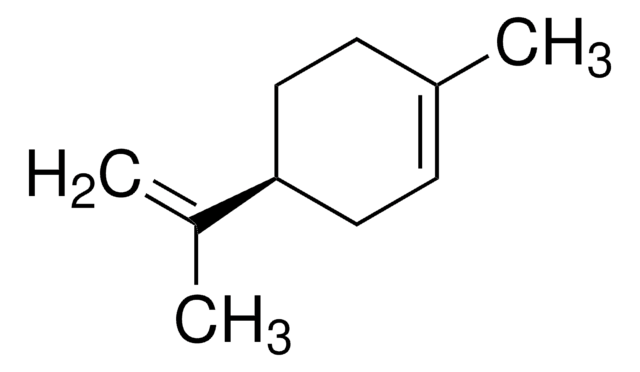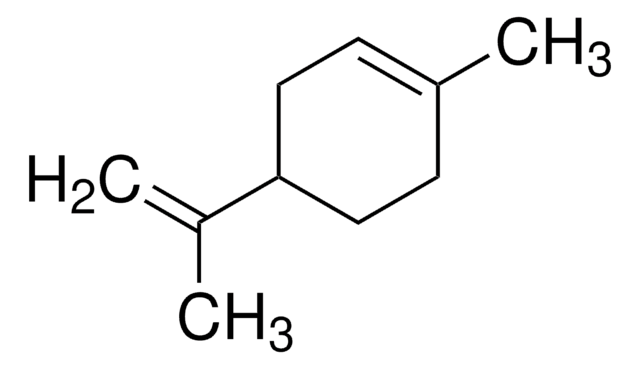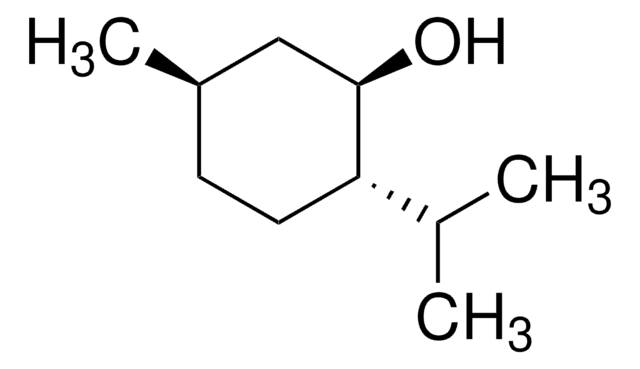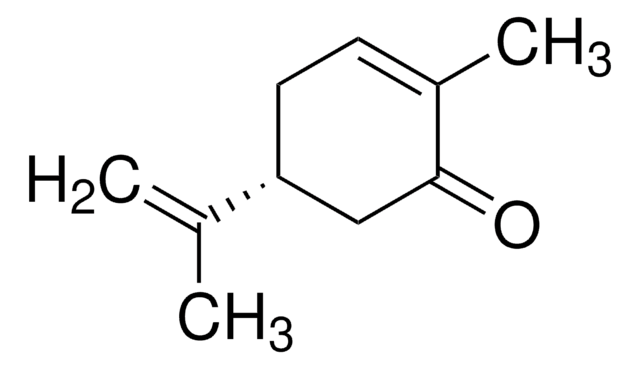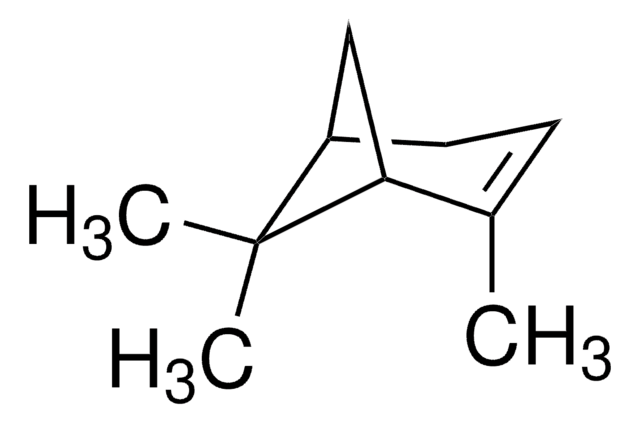62128
(S)-(−)-Limonene
analytical standard
Synonym(s):
(−)-p-Mentha-1,8-diene, (−)-Carvene, (S)-4-Isopropenyl-1-methyl cyclohexene
About This Item
Recommended Products
grade
analytical standard
Quality Level
vapor density
4.7 (vs air)
vapor pressure
<3 mmHg ( 14.4 °C)
1 mmHg ( 20 °C)
Assay
≥99.0% (sum of enantiomers, GC)
optical activity
[α]20/D −94±4°, c = 10% in ethanol
shelf life
limited shelf life, expiry date on the label
expl. lim.
6.1 %
technique(s)
HPLC: suitable
gas chromatography (GC): suitable
refractive index
n20/D 1.471 (lit.)
n20/D 1.473
bp
175-177 °C (lit.)
density
0.844 g/mL at 25 °C (lit.)
application(s)
cleaning products
cosmetics
flavors and fragrances
food and beverages
personal care
format
neat
SMILES string
CC(=C)[C@H]1CCC(C)=CC1
InChI
1S/C10H16/c1-8(2)10-6-4-9(3)5-7-10/h4,10H,1,5-7H2,2-3H3/t10-/m1/s1
InChI key
XMGQYMWWDOXHJM-SNVBAGLBSA-N
Looking for similar products? Visit Product Comparison Guide
Application
Signal Word
Danger
Hazard Statements
Precautionary Statements
Hazard Classifications
Aquatic Acute 1 - Aquatic Chronic 1 - Asp. Tox. 1 - Flam. Liq. 3 - Skin Irrit. 2 - Skin Sens. 1B
Storage Class Code
3 - Flammable liquids
WGK
WGK 2
Flash Point(F)
123.8 °F - closed cup
Flash Point(C)
51 °C - closed cup
Personal Protective Equipment
Regulatory Listings
Regulatory Listings are mainly provided for chemical products. Only limited information can be provided here for non-chemical products. No entry means none of the components are listed. It is the user’s obligation to ensure the safe and legal use of the product.
FSL
Group 4: Flammable liquids
Type 2 petroleums
Hazardous rank III
Water insoluble liquid
JAN Code
62128-BULK:
62128-VAR:
62128-5ML:
62128-1ML:
62128-25ML:
Choose from one of the most recent versions:
Already Own This Product?
Find documentation for the products that you have recently purchased in the Document Library.
Customers Also Viewed
Chromatograms
suitable for GCOur team of scientists has experience in all areas of research including Life Science, Material Science, Chemical Synthesis, Chromatography, Analytical and many others.
Contact Technical Service
